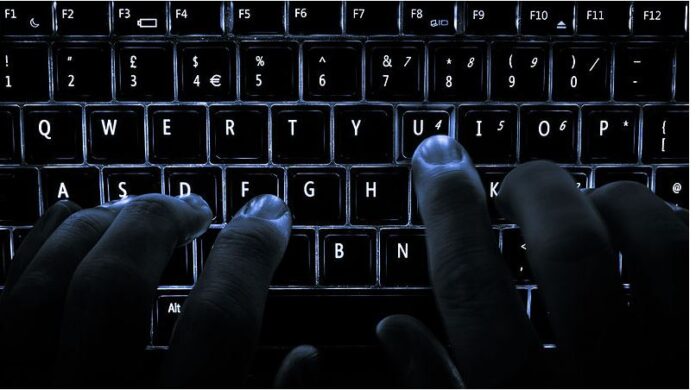image via Wikimedia Creative Commons by Colin.
By Stephanie Tong
Across the United States, the number of hate crimes against Asians has been steadily rising since the COVID-19 pandemic. The news media has featured alarming stories of physical violence from Asians of all ethnicities—particularly in urban areas, like San Francisco, New York, and Los Angeles. Although much media focus has been on the increasing face-to-face confrontation, relatively less attention has been paid to the alarming increase of online harassment of Asians.
The Anti-Defamation League (2016) classifies online racial hate speech as “the use of any electronic technology to spread bigoted, discriminatory, terrorist and extremist information” (p.2). Certain features of Internet technology –and social media more specifically—allow individuals to easily disseminate racist ideology and hate speech. The relative anonymity and invisibility of platforms like Twitter can provide users a sense of freedom to communicate hate speech (Suler, 2004). The broadcast quality of the Internet also allows people to easily disseminate hate speech to a bigger audience.
On Twitter, anti-Asian hate speech has risen by an astounding 900% since the start of the pandemic (Gilbert, 2020). A recent study by Zannettou et al. (2020) examined “topic networks” on Twitter, Reddit, and the extremist site 4chan. Beginning in January 2020, their analysis uncovered “an entire catalog of viral conspiracies and codewords around the bioweapon motif eliciting targeted ethnic hate toward Asians” (p. 1). Their analysis further showed that on 4chan the use of the anti-Asian slur “ch*nk” became contextually related to the term “virus” as the COVID-19 pandemic spread, suggesting “that the context for this increase in hate is the virus itself” (p. 3). Zannettou et al. (2020) note that the sharp increase in anti-Asian hate speech during this period stood in stark contrast to other kinds of online hate speech against other groups (“kike”; “n****r”) that remained stable during the pandemic.
Although clear evidence has emerged showing how online harassment against Asian Americans is increasing during the pandemic, this doesn’t necessarily mean that all Americans are aware of this issue. It’s easy to see how many of us could lack such awareness, because when something isn’t happening directly to you, it can be hard to perceive it as a problem.
Additionally, while we know that face-to-face violence and online hate speech is increasing, we don’t know how people are responding to this problem of pandemic-related harassment against Asians. That is, clear evidence indicates that there is a problem, but less is known about our collective reaction to the issue.

In May 2020, we surveyed 1,767 Americans, asking them about their current quality of life during the pandemic, their perceptions of increasing online harassment of Asian Americans, how they respond to this rise in pandemic-related racism, and any subsequent effects on their mental health.
Our results revealed the following key findings:
- During the pandemic, Asian Americans reported similar levels of physical health, (un)employment, and overall quality of life as non-Asian Americans. However, Asian Americans reported experiencing significantly higher levels of negative emotions (depression, anxiety, and despair) than non-Asian Americans.
- Asian Americans perceived increasing online pandemic-related racism as more problematic than non-Asian Americans.
- Finally, we saw that those who responded to the perceived threat of racism with greater resilience reported better overall psychological health.
In sum, our findings suggest that when people perceive the disruption caused by pandemic-related racial discrimination, and they are able to respond to it with resilience, they simultaneously report better overall psychological health. Notably, being unaware of increasing online harassment doesn’t mitigate its negative emotional and psychological effects among Asian Americans, as our first key finding shows. Instead, decreased attention to online racism seems to inhibit the activation of resilience and any subsequent positive impacts on psychological wellbeing.
For more details on the study (including additional results and description of methodology), please download the full Racism & Resilience White Paper, the first in the SMART Labs’ COVID-19 Research Series.
About the Author: Stephanie Tong is an associate professor in the communication studies area at Wayne State University. Her research interests lie at the intersection of interpersonal communication and new media. Specifically, she studies how people initiate, maintain, and terminate relationships using popular social media systems. Dr. Tong is the director of the Social Media and Relational Technologies (SMART) Labs, which investigates how technology affects how people make decisions about their relationships.
AsAmNews has Asian America in its heart. We’re an all-volunteer effort of dedicated staff and interns. Check out our new Instagram account. Go to our Twitter feed and Facebook page for more content. Please consider interning, joining our staff, or submitting a story.


